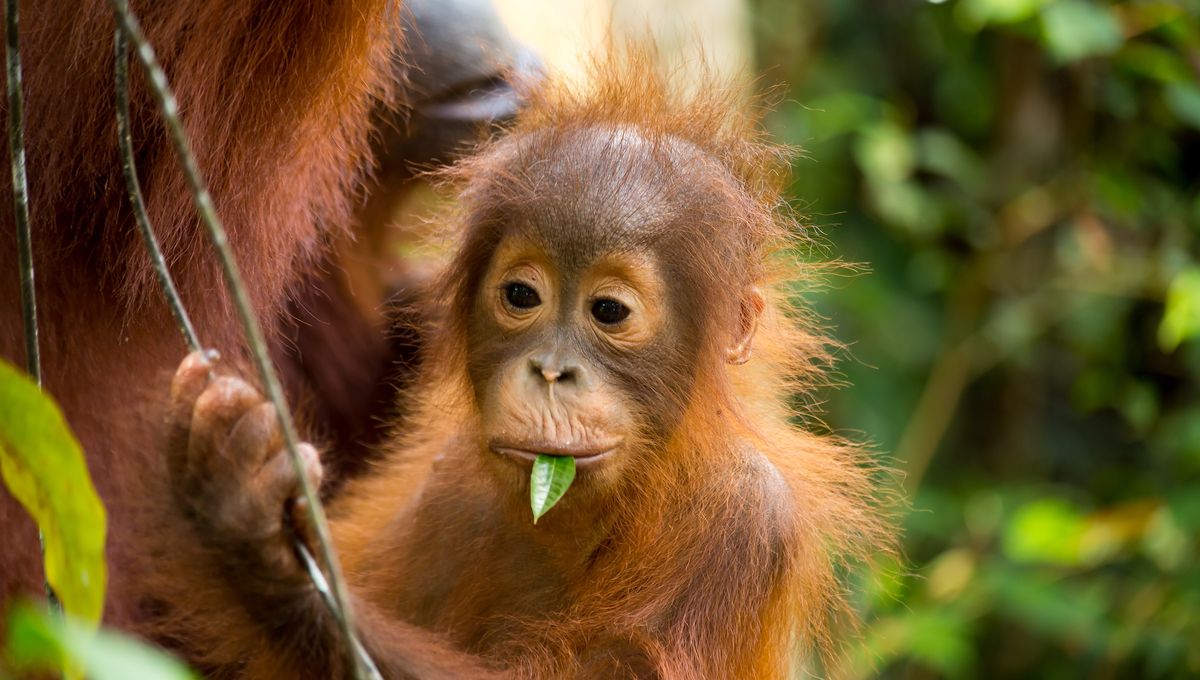
Malaysia has announced a plan to send orangutans to its major palm oil trading partners, in an effort to demonstrate its dedication to conserving the endangered species – but the strategy is being called out before it’s even begun.
The announcement was made by Malaysia’s Plantation and Commodities Minister Johari Abdul Ghani at a biodiversity forum that took place in early May. Though the precise details of the plan aren’t yet clear, it would involve sending orangutans as a “gift” to countries that import palm oil.
“By introducing ‘orangutan diplomacy’, it directly proves to the world community that Malaysia is always committed to biodiversity conservation,” Ghani later wrote on X, likening the plan to China’s “panda diplomacy”. Much like China is the only place in the word where wild pandas live, orangutans are only found in Borneo and Sumatra.
“Malaysia cannot take a defensive approach to the issue of palm oil, instead we need to show the countries of the world that Malaysia is a sustainable palm oil producer and is committed to protecting forests and environmental sustainability,” he continued.
Palm oil is pretty much everywhere; according to the World Wildlife Foundation (WWF), it’s in nearly 50 percent of the packaged products found in grocery stores, from foodstuffs like chocolate and pizza to the shampoo and lipstick found in the health and beauty aisle.
However, the demand for palm oil has also led to large-scale deforestation on the island of Borneo (partly governed by Malaysia), home to the Bornean orangutan. Considered as a critically endangered species, its continuing decline has largely been attributed to the destruction of its forested habitat.
In an effort to combat deforestation and the loss of biodiversity that comes with it, the European Union (EU) last year introduced a law to end the import of products containing palm oil – amongst other commodities – that comes from deforested land. Malaysia, the second-biggest exporter of palm oil in the world, called the law “unjust”.
With Ghani suggesting the EU could be in line to receive an orangutan, the diplomacy plan could be seen as a response to the law’s introduction.
However, the newly announced plan hasn’t gone without criticism.
“It is obscene, repugnant and extraordinarily hypocritical to destroy rainforests where orangutans live, take them away and give them as gifts to curry favor with other nations,” said Stuart Pimm, chair of conservation ecology at Duke University, speaking to CNN. “It totally goes against how we should be protecting them and our planet.”
WWF-Malaysia also released an op-ed in response to the plan, suggesting it wasn’t the best way to go about protecting the species and tackling declining biodiversity.
“WWF-Malaysia is of the opinion that a more effective way for biodiversity and orangutan conservation is through improving forest management, prioritising in-situ orangutan conservation, supporting sustainable palm oil production, and increasing international fundings for conservation efforts in developing countries,” the piece reads.
“Rather than sending orangutans abroad, this approach ensures the survival of the species and promotes responsible conservation practices and sustainable production.”
Source Link: Orangutan Diplomacy: Malaysia’s New Plan To Give Endangered Primates To Palm Oil Partners